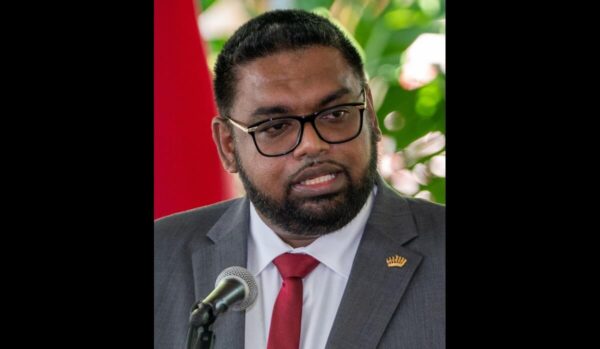‘Right These Wrongs’: Guyana’s President Boldly Demands Reparations, Posthumous Charges for British Plantation Owner As Descendants Issue an Apology for Slavery
One day before a prominent slaveholding family extended an apology to the Black Guyanese community for their historical involvement in slavery, President Irfaan Ali strongly criticized the descendants of European traders of enslaved Africans.
The 43-year-old leader pointed out that these descendants had wildly profited from the suffering of Africans who were subjected to enslavement after being stolen from Africa and dropped on the territories of South America.
On Thursday, Aug. 24, Ali proposed that these families, who had amassed their generational wealth through the trading and exploitation of human lives, should provide reparations to the descendants of the enslaved people. Furthermore, he suggested that the ancestors of these families be posthumously held accountable for committing crimes against humanity.
One such figure is John Gladstone.
Gladstone was a 19th-century Scottish plantation owner known for his sugar and coffee plantations. He is also the father of four-time British Prime Minister William Gladstone.
Despite never setting foot in Guyana or the neighboring West Indian islands, he owned more than 2,500 enslaved people in the South American country and Jamaica, some of whom worked on the plantations.
Last week, Charles Gladstone led a contingent of six descendants of John Gladstone who traveled from the United Kingdom to Guyana to apologize for their family’s participation in slavery.
“It is with deep shame and regret that we acknowledge our ancestors’ involvement in this crime, and with heartfelt sincerity, we apologize to the descendants of the enslaved in Guyana,” he said Friday during a ceremony at the University of Guyana in Georgetown. “In doing so, we acknowledge slavery’s continuing impact on the daily lives of many.”
During the buildup to Friday, President Ali said the apology is “an acknowledgment of the cruel nature of African enslavement and indentureship in Guyana and an act of contrition that paves the way for justice. The Gladstone family has admitted that it benefited from African enslavement and indentureship on the Demerara and other plantations owned by its patriarch, John Gladstone,” The Associated Press reported.
However, he emphasized to the Gladstone family the importance of including discussions about compensation and reparative justice in their actions.
“Reparations (are) a commitment to righting historical wrongs. The trans-Atlantic slave trade and African enslavement were an affront to humanity itself. The heinousness of this crime against humanity demands that we seek to right these wrongs.”
The president said the next step is for the family to “outline their plan of action in line with the Caricom…plan for reparatory justice for slavery and indentureship,” and it should include an investment of billions of dollars into education, health, infrastructure, and cultural initiatives.
According to its website, Caricom is an alliance of 20 nations, 15 member states and five associate members.
The collective stretches from The Bahamas in the northern region to Suriname and Guyana in South America. It is also composed of states classified as developing countries. With the exception of Belize in Central America and Guyana and Suriname in South America, all of the member and associate members are island nations.
While the Gladstone family received their instruction from the Guyanese president, the rest of the U.K. is being instructed to pay reparations by a leading judge in the International Court of Justice.
Judge Patrick Robinson told The Guardian in a recent interview that reparations to the descendants of people sorely oppressed during trans-Atlantic slavery “is required by history and is required by law.”
“They cannot continue to ignore the greatest atrocity, signifying man’s inhumanity to man. They cannot continue to ignore it. Reparations have been paid for other wrongs and obviously far more quickly, far more speedily than reparations for what I consider the greatest atrocity and crime in the history of mankind: transatlantic chattel slavery,” said Robinson, who helped write the “Brattle Group Report on Reparations for Transatlantic Chattel Slavery,” an analysis of reparations, which was published this year.
“I believe that the United Kingdom will not be able to resist this movement towards the payment of reparations: it is required by history, and it is required by law,” the Jamaican native added.

